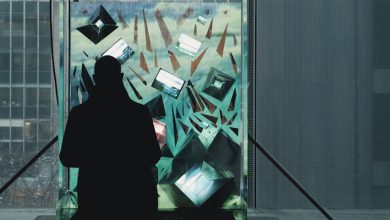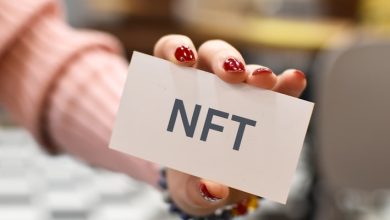The Future of Non-Fungible Tokens (NFTs) in Digital Ownership

- Understanding the Rise of NFTs in the Digital World
- Exploring the Potential Impact of NFTs on Ownership Rights
- Challenges and Opportunities for NFTs in the Future
- The Evolution of NFT Marketplaces and Platforms
- Legal Implications of NFTs in the Digital Ownership Landscape
- Innovations and Trends Shaping the Future of NFTs
Understanding the Rise of NFTs in the Digital World
The rise of Non-Fungible Tokens (NFTs) in the digital world has been a significant phenomenon in recent years. NFTs are unique digital assets that represent ownership of a particular item or piece of content. One of the key reasons behind the popularity of NFTs is their ability to provide digital scarcity and provenance, allowing creators to authenticate their work and establish its originality.
NFTs have gained traction across various industries, including art, music, gaming, and collectibles. Artists and creators are leveraging NFTs to tokenize their work and reach a global audience of digital collectors. This has led to a new era of digital ownership, where individuals can buy, sell, and trade unique digital assets with ease.
The blockchain technology that underpins NFTs ensures transparency and security in transactions, making it easier for collectors to verify the authenticity and ownership of digital assets. This has opened up new opportunities for artists and creators to monetize their work and engage with their fans in innovative ways.
As NFTs continue to gain mainstream adoption, the digital ownership landscape is evolving rapidly. Companies are exploring new use cases for NFTs, such as ticketing, real estate, and intellectual property rights. This has the potential to revolutionize how we perceive and interact with digital assets in the future.
Overall, the rise of NFTs in the digital world represents a paradigm shift in how we view ownership and value in the digital age. By embracing this new technology, creators and collectors alike can unlock new possibilities for creativity, collaboration, and economic empowerment in the digital realm.
Exploring the Potential Impact of NFTs on Ownership Rights
NFTs have the potential to revolutionize ownership rights in the digital space. By utilizing blockchain technology, NFTs provide a unique way for individuals to claim ownership of digital assets. This has far-reaching implications for artists, creators, and collectors who can now prove ownership of their work in a secure and transparent manner.
One of the key benefits of NFTs is the ability to establish provenance, or a record of ownership history. This can help mitigate issues related to copyright infringement and intellectual property theft, as the ownership of a digital asset can be easily traced back to its original creator. Additionally, NFTs can enable creators to receive royalties every time their work is resold, ensuring that they continue to benefit from their creations even after the initial sale.
Furthermore, NFTs have the potential to democratize ownership by allowing individuals to invest in digital assets that were previously inaccessible. This can open up new opportunities for artists and creators to monetize their work, as well as for collectors to diversify their portfolios with unique digital assets.
Overall, the impact of NFTs on ownership rights is still being explored, but the potential for positive change in the digital landscape is undeniable. As the technology continues to evolve, it will be interesting to see how NFTs shape the future of ownership in the digital age.
Challenges and Opportunities for NFTs in the Future
The future of non-fungible tokens (NFTs) in digital ownership presents both challenges and opportunities that will shape the landscape of this emerging technology. As NFTs continue to gain popularity, they face various hurdles that need to be addressed for widespread adoption. At the same time, there are numerous possibilities for growth and innovation that can propel NFTs to new heights.
One of the challenges facing NFTs is the issue of scalability. As more users participate in the NFT market, there is a growing concern about the ability of current blockchain networks to handle the increasing volume of transactions. This bottleneck could hinder the seamless buying, selling, and trading of NFTs, limiting their potential impact.
Another challenge is the environmental impact of NFTs. The energy consumption required to mint and trade NFTs on blockchain networks has raised concerns about sustainability. As the world becomes more environmentally conscious, finding ways to reduce the carbon footprint of NFTs will be crucial for their long-term viability.
Despite these challenges, there are also significant opportunities for NFTs in the future. One of the most promising prospects is the integration of NFTs into various industries beyond art and collectibles. From real estate to gaming to music, NFTs have the potential to revolutionize how assets are bought, sold, and owned in the digital world.
Furthermore, the use of smart contracts in NFTs opens up new possibilities for automated transactions and royalties. Artists and creators can benefit from the ability to earn royalties every time their NFT is resold, providing a new source of revenue and empowering creators to better monetize their work.
The Evolution of NFT Marketplaces and Platforms
The evolution of NFT marketplaces and platforms has been a key factor in driving the growth of digital ownership. These platforms have provided a space for creators and collectors to exchange unique digital assets in a secure and transparent manner. As the demand for NFTs continues to rise, marketplaces are constantly innovating to provide better user experiences and more opportunities for creators to monetize their work.
One of the key trends in the evolution of NFT marketplaces is the integration of blockchain technology. Blockchain provides a decentralized and secure way to verify ownership of digital assets, making it an ideal solution for NFTs. Marketplaces that leverage blockchain technology can offer increased security, transparency, and authenticity for buyers and sellers.
Another trend in the evolution of NFT marketplaces is the rise of niche platforms catering to specific industries or interests. These platforms allow creators to connect with a targeted audience that shares their passion, making it easier to find buyers for their NFTs. Niche platforms also provide collectors with a curated selection of assets that align with their interests, making it easier to discover and purchase NFTs that resonate with them.
Overall, the evolution of NFT marketplaces and platforms is driven by a desire to create better experiences for both creators and collectors. By leveraging blockchain technology and catering to niche audiences, these platforms are shaping the future of digital ownership and revolutionizing the way we buy, sell, and collect unique digital assets.
Legal Implications of NFTs in the Digital Ownership Landscape
NFTs have brought about a revolution in the digital ownership landscape, offering a new way for individuals to buy, sell, and trade unique digital assets. However, with this innovation comes a host of legal implications that need to be considered.
One of the key legal considerations surrounding NFTs is the issue of intellectual property rights. As NFTs allow for the ownership of digital assets, questions arise about who holds the rights to these assets and how they can be protected. Artists, musicians, and other creators need to be aware of how their work is being used and distributed in the NFT space to prevent copyright infringement.
Another important legal aspect of NFTs is the issue of contracts and ownership. Smart contracts are used to establish ownership and transfer rights of NFTs, but there may be disputes over the terms of these contracts. It is essential for individuals engaging in NFT transactions to fully understand the terms of the smart contracts they are entering into to avoid any legal complications.
Furthermore, the regulatory landscape surrounding NFTs is still evolving, with different jurisdictions having varying levels of oversight. As NFTs gain popularity, regulators are likely to increase their scrutiny to ensure compliance with existing laws and regulations. It is crucial for NFT marketplaces and participants to stay informed about the legal requirements in their respective jurisdictions to avoid any potential legal issues.
In conclusion, while NFTs offer exciting possibilities for digital ownership, it is essential to be aware of the legal implications that come with this new technology. By staying informed and taking proactive steps to address legal considerations, individuals can navigate the NFT landscape with confidence and ensure a secure and compliant experience.
Innovations and Trends Shaping the Future of NFTs
One of the key innovations shaping the future of NFTs is the development of interoperable platforms that allow for seamless exchange and transfer of digital assets across different blockchains. This opens up new possibilities for creators and collectors alike, as it enables greater flexibility and accessibility in the NFT ecosystem.
Another trend that is gaining traction in the NFT space is the use of decentralized finance (DeFi) protocols to enhance the liquidity and utility of digital assets. By leveraging smart contracts and automated market makers, NFT owners can now participate in yield farming, lending, and other financial activities using their non-fungible tokens as collateral.
Furthermore, advancements in token standards such as ERC-721 and ERC-1155 are paving the way for more complex and dynamic NFTs that can represent fractional ownership, royalties, and even real-world assets like real estate and intellectual property. These new capabilities are expanding the potential applications of NFTs beyond just digital art and collectibles.
Overall, the future of NFTs is looking increasingly bright as these innovations and trends continue to shape the digital ownership landscape. With greater interoperability, enhanced liquidity, and more versatile token standards, non-fungible tokens are poised to revolutionize the way we buy, sell, and trade digital assets in the years to come.



